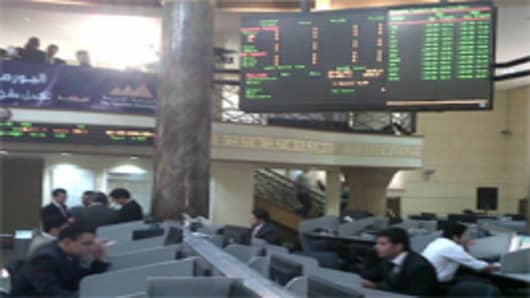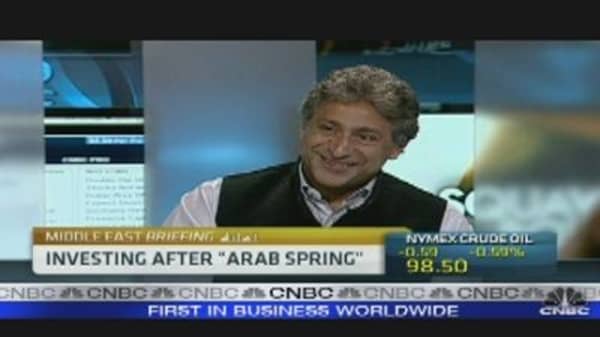Investors may be wary of putting their money in the Middle East and the Arab peninsula given the political turmoil which has shaken the region in recent months, but it offers investment opportunities worth considering, one fund manager told CNBC.
“There are two sides of the Arab world,” Shirish Saraf, the Vice Chairman and CEO of Samena Capital, told CNBC in an interview on Wednesday. “You have the economies of the GCC, which we continue to very much believe in, and the markets in the Levant and Egypt and various other things which are currently under political turmoil.”
“I do believe there is an inflection point across Middle East. The first one was the Second World War, where boundaries were drawn,” Saraf said, “This is the second one, where it’s going to be about educational reforms, political reforms and social reforms.”
This situation will turn into a “10 to 20 year testing period… that will translate into every country in the Arab World,” said Saraf, who sees this as an opportunity for his fund, especially in the United Emirates and in Saudi Arabia.
Saudi Arabia is a market no one can ignore because of its purchasing power, Saraf explained, but even though “it is the main market in the Arab world… clearly, it will come with a set of challenges,” he said, referring to the lack of political structure.
Investors in his fund, Saraf said, are looking more and more towards India and China because the environment in their region is unstable.
This is why Saraf believes in “cross-border consolidation” and is launching his second "special situation fund" dedicated to long term investments in companies which grow across Middle East, India and Asia, targeting $700 million. The fund already has commitments of $350 million, he said.




